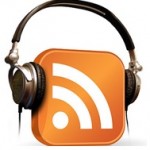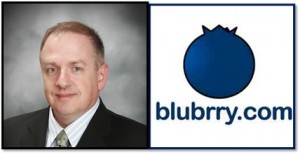Today, Jacobs Media’s Seth Resler, with a “Guest List” feature on one of his favorite topics – podcasting.
In the past year, as radio broadcasters have increasingly started paying attention to the world of on-demand audio, discussion around podcasting metrics has sprung up. After all, as Nielsen’s Matt O’Grady has pointed out, “You can’t sell what you can’t measure.”

Additionally, Westwood One recently commissioned a report that concluded that “Advertisers are waiting at podcasters’ doors; data is what will get them to come in. Measurement is key to broad advertiser and agency adoption.” The Wall Street Journal recently drew the same conclusion.
Nielsen hopes to eventually measure all audio listening, including podcast listening, with its SDK. However, doing so may require cooperation from Apple, as iTunes and Apple’s podcasting app are the source of the vast majority of podcast listening. As the company’s current tussle with the FBI illustrates, it’s not particularly fond of sharing data with outside parties.
Meanwhile, a public radio steering committee has also concluded that “Podcast measurement is, at best, the Wild West.” They have now issued Public Radio Podcast Measurement Guidelines.
But are these radio broadcasters who are just now embracing the podcasting space correct? Are the podcasting metrics as elusive and fallible as they think? As a recent discussion on the Podcasters Roundtable illustrates, not everybody agrees. In fact, many of podcasting’s forefathers argue that the currently available analytics are much better than many would have you believe. They argue that podcasting metrics provide far better actionable data than radio’s traditional data.
One who defends current podcasting measurement is Todd Cochrane, CEO of RawVoice/Blubrry, a podcast services company that specializes in podcast statistics, hosting and advertising. He is a Podcast Hall of Fame inductee and has produced Geek News Central since October 2004. Cochrane is also the co¬host of the New Media Show and founded the People’s Choice Podcast Awards. In 2005, Cochrane wrote and published “Podcasting: The Do it Yourself Guide,” the first book on podcasting.
Blubrry provides statistics, hosting and advertising services to 35,000 independent media creators, major podcast networks and commercial radio. Commercial radio over the past 18 months has been a huge growth area.
Todd is one of the sharpest observers of the podcasting landscape, and in this week’s JacoBLOG “Guest List” feature, he provides us with:
5 Things You Should Know About Podcast Measurement
1. Don’t Believe Everything You Read
First and foremost, in recent weeks there has been a lot of very bad reporting and misinformation about the accuracy of podcast measurement. Sadly, it appears that there is an ongoing effort by some in the podcasting space to discredit podcast measurement, setting an agenda that is commercially motivated to either fit their business model or benefit their partners.
Since 2005, Blubrry and several other podcasting companies have been providing highly accurate podcast measurement to podcasters, media buyers and companies advertising in the space. Our podcast measurement platform has evolved considerably from the standards created in 2008 via the former Association of Downloadable Media.
2. Stats Filtering is Key
Accurate and precise podcast measurement entails deep analysis and the processing of raw content – delivery of network log files. The processing includes filtering of bots, eliminating or qualifying duplicate downloads/listens, excluding bad app behavior, filtering and actively monitoring for fraud along with a host of other processes. Because we at Blubrry have such a huge data set in the hundreds of millions of downloads/streams each month we can see through active analysis emerging trends that need to be addressed or accounted for.
3. Today’s Podcast Stats Provide Lots of Info
Podcast statistics today can provide a huge amount of intelligence: total unique IPs, total downloads/deliveries, geographic breakdowns, device and platform specifics, app reporting and even standard referral data. Podcast stats tell our clients minute details across year(s), month(s), day(s); from a complete show overview right down to the life cycle of a single episode.
 4. Podcast Stats Can Tell You How Much People Listened To
4. Podcast Stats Can Tell You How Much People Listened To
Enterprise customers can even access partial download data; we tell the client how much of a media file was actually delivered. Podcasts today are consumed two ways, on-demand from a pre-downloaded file or via an active play, which a lot of people like to call a stream. The partial download data is valuable because clients can see if a listener scrubbed in, bounced out midway through playback and such. This data allows them to make programming decisions about the shows they produce, and provide more accurate reporting to media buyers.
5. Advertisers Like the Podcast Data They Are Seeing
Finally, it is our opinion that the groups complaining the most about podcast measurement are the ones that either do not have their own measurement system or scientific knowledge, or do not like the numbers they are getting from the respected players in the space.
For the past 11 years, advertisers have always measured campaign success on the ROI delivered, as most campaigns to date have been direct response campaigns. With podcast advertising spending pushing $100 million annually by our calculations, it’s obvious media buyers are confident and satisfied with podcast measurement from respected industry leaders.
Also, having executed more than 250 advertising campaigns the past 11 years, Blubrry has never had a media buyer question advertising reporting data. In fact we provide independent podcast measurement certification for our entire pro and above clients, whether they are on an ad deal with us or not.
Blubrry is an active participant in the IAB Podcast Measurement committee currently working on guidelines that incorporate the fundamental tenets of the 2008 standards document. We believe when the process at the IAB is complete, the majority of the podcast industry will stand behind a new standards document.
We are talking to radio stations globally each week that are creating innovative content to be delivered as a podcast. Podcasting for radio is a natural next step as consumers become more digital and seek out content they can subscribe and listen to on-demand. We encourage radio stations to reach out to our team to help with their podcast deployment strategy.
Seth Resler will be moderating a great panel at the Worldwide Radio Summit in L.A. in April. “Broadcasters Meet Podcasters: How Radio Stations Can Enter the World of On-Demand Audio” features Todd Cochrane, along with Rob Walch (VP, Podcaster Relations, Libsyn), Eric Nuzum (SVP Original Content Development, Audible), and Andy Bowers (Chief Content Officer, Panoply Media). Details here.
More Guest Lists
- Top 5 Reasons Radio Should Attend Podcast Movement
- Sean Pollock: 5 Things About Millennials Every Radio Broadcaster (and Sales Team) Should Know
- KNDD’s Gregr: 5 Ways Podcasting Has Made Me A Better Broadcaster
- Mark Biviano: 5 Ways Radio Can Win With Event Marketing
- Sheri Lynch: The Top 5 Radio Topics That Get The Phones Ringing
- A Simple Digital Treat to Thank Your Radio Listeners This Thanksgiving - November 13, 2023
- Interview Questions When Hiring Your Radio Station’s Next Digital Marketing Manager - November 6, 2023
- A Radio Conversation with ChatGPT: Part 2 – Promotions - October 30, 2023






We hear this all the time, “how do we monitize it.” Great article and it’s really about the meat of bringing the revenue in, having the proper tools! Thanks for sharing!
Thanks for the comment, Andy. The revenue piece fuels more content creation.
Interesting article! How many listeners / stats would you need to make the jump from a podcast to the radio? Has this ever been done before?
Kristof, there is no rule of thumb. But insiders often say that 5,000 downloads per episode is the threshold for making Monday on podcasts. That might also be an indicator of the potential for podcasters to make the leap to broadcasting. Thanks for commenting, and I invite others to offer opinions on Kristof’s question.
Good question but I also think that increasingly there will be a shift to people going to podcasting, finding success and liking the independence from a radio company.
They may have a smaller slice of the pie but the independence I imagine is very appealing…especially if they are making money.
Marty, no question that freedom and independence (including technical aspects, like no restrictions on length) come into play. Monetization, however, is key if podcasting is to lure mature talent to the on-demand world. Thanks for the comment.
Kristof,
To my knowledge, no podcaster has jumped from podcast to radio yet, though I believe there was discussion of turning Marc Maron’s WTF into a radio show. Fred is correct — the oft-cited number for attracting advertisers to a podcast is at least 5,000 downloads per episode within 30 days of the episode’s release.
I think it’s unlikely that a podcast would be taken “whole cloth” and put on the radio. There are some important formatic difference between podcasts and radio. Radio has commercial breaks, people always start podcast episodes at the beginning while they may tune into radio shows in the middle, no swearing on the radio, etc. In general, podcasts have looser format standards, and, as Marty said, I think a lot of podcasters would have a hard time giving that up. Generally, I think it’s easier to repurpose a radio show (like Wait Wait…Don’t Tell Me!) as a podcast than vice versa. But that doesn’t mean that radio companies might not look to a podcast host to work on project.
If you look at public radio, you’ll also see them incorporate podcasters into their radio programming ways in smart ways. For example, they might bring on a Planet Money or Invisible Brain host to do a segment on Morning Edition. I could see commercial radio incorporating podcasters in the same way, perhaps similar to how CBS is using celebrity blogger Perez Hilton.